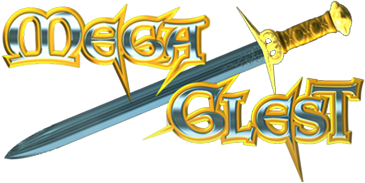The Licensing and Compliance Lab interviews the MegaGlest Project
jeudi 27 avril 2017 à 18:50 |
MegaGlest, currently at version 3.12, is a free software
real-time strategy computer game set in a fantasy world, mixing elements
of re-imagined past civilizations, magic, and steampunk. The world of MegaGlest has seven factions: Magic, Tech, Indian,
Egyptian, Norsemen, Persian and Roman. Each faction comes with its own
set of units, buildings, upgrades, advantages and disadvantages. This
allows for variation in strategy, while keeping game play balanced.
What inspired the creation of MegaGlest?
MegaGlest started in January, 2010, as a vision from a long-time community member, Titus Tscharntke (Titi). Joining Titus as the project developer was Mark Vejvoda (SoftCoder). In late 2010, Tom Reynolds (tomreyn) joined the team in an IT and QA capacity. In early 2015, filux started with the team as a GNU/Linux scripting automation guru. While there are now numerous other contributors, the core team remains intact.
Titi's vision was to take the original game, Glest, and turn it into an addictively fun experience with a broader scope. Once Titi released the Megapack which consisted of four additional factions, it became clear that the game had massive potential. This was the inspiration for the Mega in MegaGlest.
"Glest was a raw diamond in the free software world and I was fascinated that I had full access to such a 3D game and its source code. I was so sad when I saw that the original developers stopped development because I already had put so much time into making more content for this game (the Megapack). There were some efforts to take on development by some others and I tried to help, but the results did not make me happy. After more than a year, I decided to try for myself and I forked the original Glest. This was the start of MegaGlest. For me it was always important to play the game and this always was and is my primary motivation to work on the game." -- Titi
How are people using it?
MegaGlest is more than just a game! While the core game ships with seven unique factions, the engine itself has been used to produce other stand alone spin-off games such as Annex: Conquer The World. A more complete list of mods can be found on the MegaGlest wiki mods list. A built in downloadable content (DLC) system provides access to additional community game art. MegaGlest also offers a 'scenario' mode where users can enjoy story driven adventures. Most importantly community members agree that the network play provides the most enjoyment - offering players a chance to join with up to seven others online and compete for bragging rights (the AI is nearly impossible to beat, especially at Ultra level and higher).
What features really set MegaGlest apart from other 3D real-time strategy games?
MegaGlest features a robust and complex opponent AI. This AI is unpredictable and dynamic in responding aggressively to players. An exciting feature of MegaGlest is that players can work cooperatively to battle against the AI, which allows for a powerful social component in the game. The game works across various operating systems so users can play one another regardless of their system.
A compelling component of the game is the ease at which the game files can be developed. The modification to the game occurs through XML files. This allows for the rapid creation of such work. Maps are also easily made with the built in map editor. Acquiring these new game publications is straight forward in MegaGlest due to the built-in DLC center.
Why did the project choose GNU GPLv3 as MegaGlest's license?
The original Glest developers used GNU GPLv2 or later. After we
had some discussions with the Debian games team, we decided to change
the license. As a result of those conversations, we decided to upgrade
to GNU GPLv3 or later. Our game art is licensed under
CC-BY-SA 3.0. Together they ensure that users are free to use, modify,
and share all aspects of the game.
How can users (technical or otherwise) help contribute to MegaGlest?
The most fun way to contribute is to play the game, which is especially true when talking about multiplayer mode - maybe at your next LAN party? Related to this is that while playing the game report any bugs you find and if possible dedicate some time to testing out the software. We are set up to receive, and truly appreciate, donations to help defray the cost of the game servers and other infrastructure matters. We don't have a marketing budget so spreading the word is of great help.
Another major way that users can contribute is by helping develop new
game art such as maps, tilesets, models, and factions.
Translations and localizations are always a work in progress and
could use assistance. Hacking on the game engine code is another
great way to participate. We would welcome game engine contributions
by OpenGL / SDL2 experienced C++ developers who can demonstrate
earlier work in this area.
What's the next big thing for MegaGlest?
Some of our tentative plans for the coming year are to produce a lightweight headless server, roll out player accounts and increase our distribution outlets.
Enjoy this interview? Check out our previous entry in this series, featuring Defense Digital Service and eMCM.
MegaGlest logo is licensed under Creative Commons Attribution-ShareAlike 3.0 Unported.